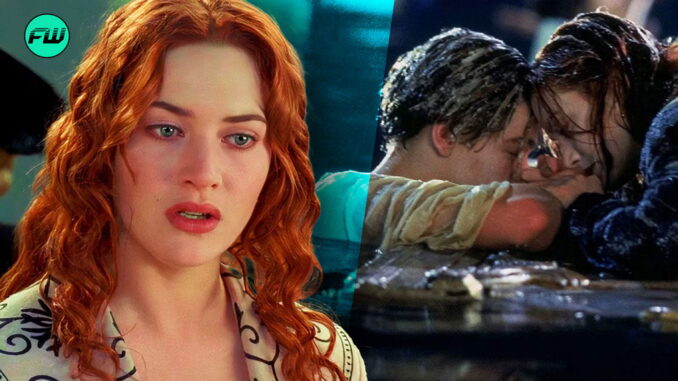
The year 1997 unleashed Titanic, a cinematic leviathan that didn't just break box office records; it shattered them, becoming a cultural meteor that burned itself into the global consciousness. At its heart were two young actors, Leonardo DiCaprio and Kate Winslet, catapulted overnight from promising talents to global sensations. For Winslet, then just 22 years old, the experience of navigating the physical and emotional demands of playing Rose DeWitt Bukater, followed by the unprecedented tsunami of celebrity, left her feeling something profoundly paradoxical: she wasn’t ready for big Hollywood movies. That such a sentiment could emerge from the very crucible of the biggest Hollywood movie ever made is both utterly crazy and undeniably tragic.
It's crazy because Titanic wasn't just "a big Hollywood movie"; it was the big Hollywood movie, a colossal undertaking that defied scale and expectation. If spending months on a freezing set, enduring grueling physical stunts, delivering a nuanced performance that resonated with billions, and then embarking on an endless, worldwide press tour for a film of its magnitude doesn't prepare you for "big Hollywood," then what possibly could? Titanic was the ultimate trial by fire, a cinematic Everest that Winslet, against all odds, conquered with grace and formidable talent. She didn't just survive the experience; she excelled in it, proving her dramatic chops and her capacity for carrying a blockbuster. To then feel "unready" for anything less than that level of intensity seems illogical, almost absurd. It's akin to a decorated war veteran feeling unprepared for a skirmish, or a marathon runner feeling too winded for a jog. The sheer scale of her achievement in Titanic should have been the ultimate testament to her readiness for any Hollywood challenge.
Yet, this feeling is also profoundly tragic. It reveals the hidden cost of meteoric success, the dark underbelly of a dream fulfilled. Winslet wasn't saying she wasn't talented enough, or skilled enough, or even ambitious enough. She was saying she wasn't ready for the aftermath – the relentless glare of public scrutiny, the loss of privacy, the commodification of her image, and the feeling of being trapped in a golden cage of global fame. The tragedy lies in the fact that the very vehicle of her triumph became, in a way, a source of profound discomfort and a catalyst for a period of retreat.
Imagine being 22, still forming your identity, and suddenly having your face plastered on every magazine cover, your private life dissected, your every move scrutinized by an uninvited gaze. The "big Hollywood movie" isn't just about the acting; it's about the machine that surrounds it – the relentless promotion, the invasive paparazzi, the weight of expectation, and the public's tendency to conflate actor with character. For Winslet, who had always gravitated towards complex, character-driven roles in smaller, more intimate films (Heavenly Creatures, Sense and Sensibility, Jude), the Titanic experience was a jarring shock to her system. It stripped away the quiet focus of her craft and replaced it with a cacophony of celebrity.
Her immediate career choices post-Titanic bear testament to this internal struggle. Instead of leaping into another mega-budget spectacle, she deliberately pivoted towards indie and art-house films: Hideous Kinky, Holy Smoke, Quills, Iris, and eventually, the brilliantly unconventional Eternal Sunshine of the Spotless Mind. These were not films designed for the global masses, but projects that allowed her to explore challenging characters and reclaim her sense of artistic purpose away from the blinding lights of superstardom. It was a strategic retreat, a necessary recalibration to find her footing after being unmoored by Titanic's overwhelming success.
In essence, Winslet's "unpreparedness" wasn't a deficit of skill or talent, but an overwhelming of her spirit. It’s a tragic reminder that the pinnacle of professional achievement can often come with a heavy psychological toll, especially for those thrust into it at a young age. What looked like the ultimate dream from the outside was, from within, a disorienting, even frightening, experience. That Kate Winslet, after surviving the cinematic equivalent of an iceberg collision, felt she still wasn't ready for the treacherous waters of Hollywood underscores a profound truth: true readiness isn't just about ability; it's about the resilience of the human spirit in the face of an uncontrollable storm.